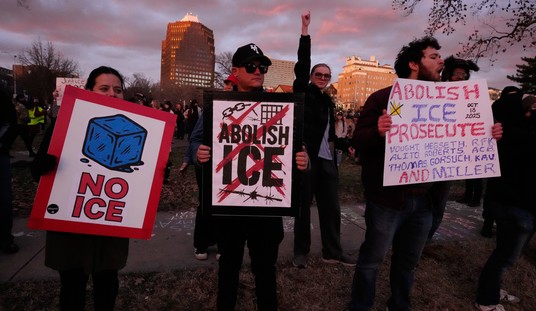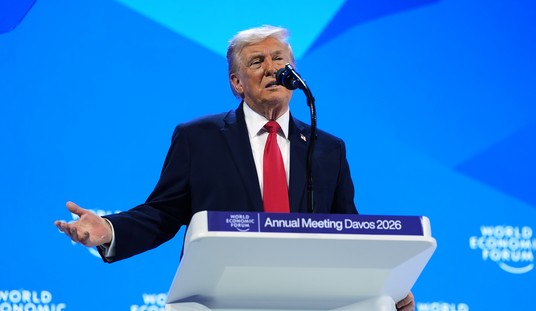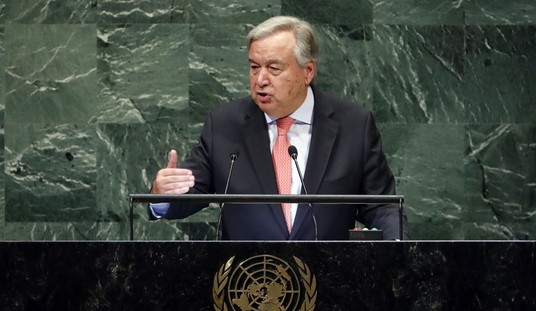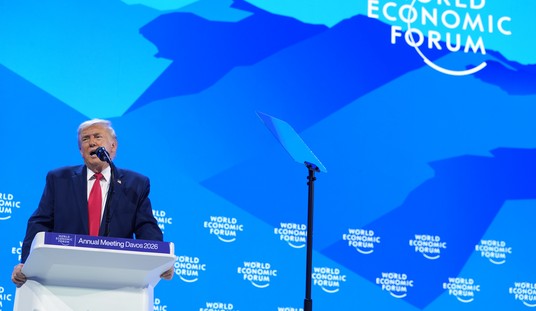As Israel continues to mop up what's left of Iran's military leadership, and Revolutionary Guards with dustpans and contractor bags start cleaning up what's left of Iran's nuclear program, the world's opinion class has rejoined a debate that some thought settled in 2020: when it comes to foreign policy, is there a "Trump Doctrine", and what is it?
There's been some debate on the subject, as the world situation morphed during the four years between two two Trump administrations.
As the administration assumed office, some of the chattering class assumed that confusion was not just the norm, but the deliverable:
A lot of labels have been applied to Trump's foreign policy approach. America First, Isolationist, transactional, imperialist, protectionist. "I'm a nationalist and a globalist" he told the Wall Street Journal during his first term.
In his inaugural address last month, Trump made comments suggesting his foreign policy will be characterized by restraint, saying, in part, success should be defined by the "wars we never get into."
Yet in the same address, he also said, the United States will take back the Panama Canal.
John Bellamy Foster, writing in "Monthly Review" in a long-ish piece that swerves promiscuously into the background-noise yapping about "fascism" and 1930s parallels that keep so much of the left's pseudo-intellect class busy these days, notes in a piece that clearly came out before this week:
The dramatic shift in U.S. imperialism under the Donald Trump presidency, both in his initial term of office and even more in the current one, has created enormous confusion and consternation within establishment centers of power. This sudden alteration in U.S. foreign policy is manifested in the abandonment of both the liberal international order constructed under U.S. hegemony after the Second World War and the long-term strategy of NATO enlargement and proxy war with Russia in Ukraine. Imposition of high tariffs and shifting military priorities have put the United States in conflict with even its long-term allies, while the New Cold War on China and the Global South is accelerating.
So extreme is the shift in U.S. power projection, and so great the confusion that this has generated, that even some figures long associated with the left have fallen into the trap of seeing Trump as isolationist, anti-militarist, and anti-imperialist. Thus, disaffected leftist Christian Parenti has argued that Trump “isn’t an anti-imperialist in the left-wing sense. Rather, he is an instinctual America-First isolationist,” whose goal, “more than any recent president,” is “to dismantle America’s informal global empire,” and to promote a new “anti-militarist” foreign policy “opposing empire.”1
This past week has, however, brought us a bit of clarity on the issue. "Cynical Publius" at American Greatness recaps the changes this past week have wrough on the notion of the Trump Doctrine:
To preview succinctly, the Trump Doctrine consists of a series of business-like, iterative steps for all uses of American military force, and it performs as follows:
Identify America’s national interest.
Bargain with the prospective enemy.
If/when negotiations fail, conceal & misdirect.
Strike with precision and overwhelming force.
Achieve submission.
Bargain again (from a position of complete strength) with the defeated enemy.
Mr. Publius then goes on to explicate each of the steps. The whole thing is worth a read - but I'm going to pullquote part 2:
Donald Trump will never expend American blood and treasure when a deal can be made first. Unlike so many of his predecessors, he does not care much about the moral fiber of America’s prospective enemies; he only cares about benefiting his American stockholders. Thus, when he offered the crazed theocrats ruling Iran a chance to bargain, he meant it. Trump does not care how much the mullahs punish their own citizens; he only cares about his fiduciary duties to his stockholders. Had the mullahs decided to bring their nation to the nuclear negotiating table in good faith, no B-2 bombers would have flown over Iran this past weekend.
This was the part that confused so may intellectually straitjacketed opponents in Trump's first term, the crowd that thought he must be a closet dictator for talking with Kim Jong Un and Vladimir Putin - while going on to hamstring both of them in ways no previous administration had done.
Again, read the whole thing. Although this guy sums up the tl:DR version of it, really:
President Trump always offers a deal. As I have said, The Trump Doctrine gives two options: Make A Deal or FAFO.
— Christopher The Warrior (@TheChrisMoreno) June 13, 2025
Iran chose FAFO. pic.twitter.com/iLFZtPCc4l
Neither the Iran situation nor the definition of the "Trump Doctrine" are conclusively settled yet, of course. But when you look at Publius's breakdown, there is a consistency forming that you don't always get reading Truth Social out of context.








